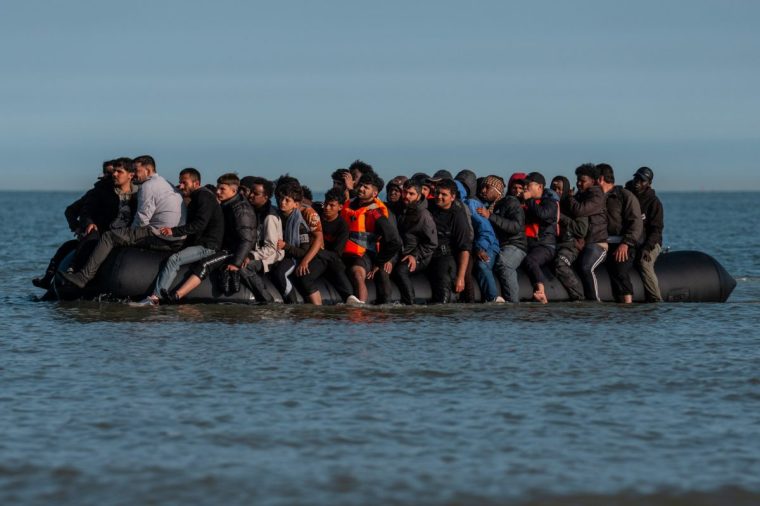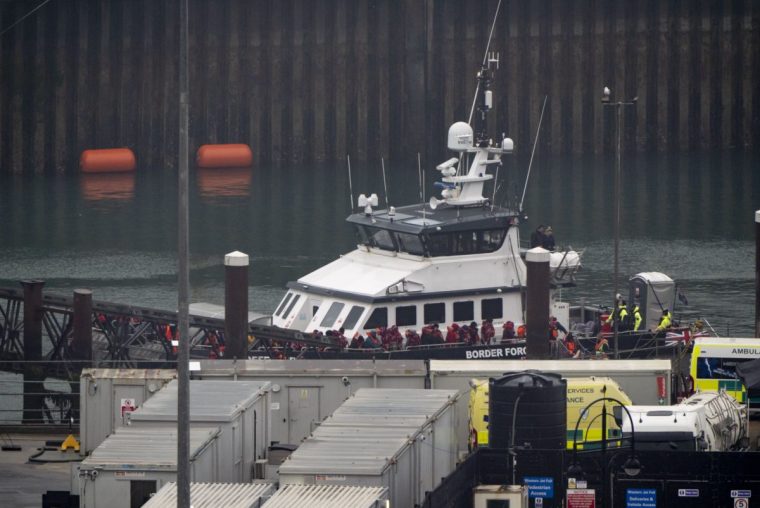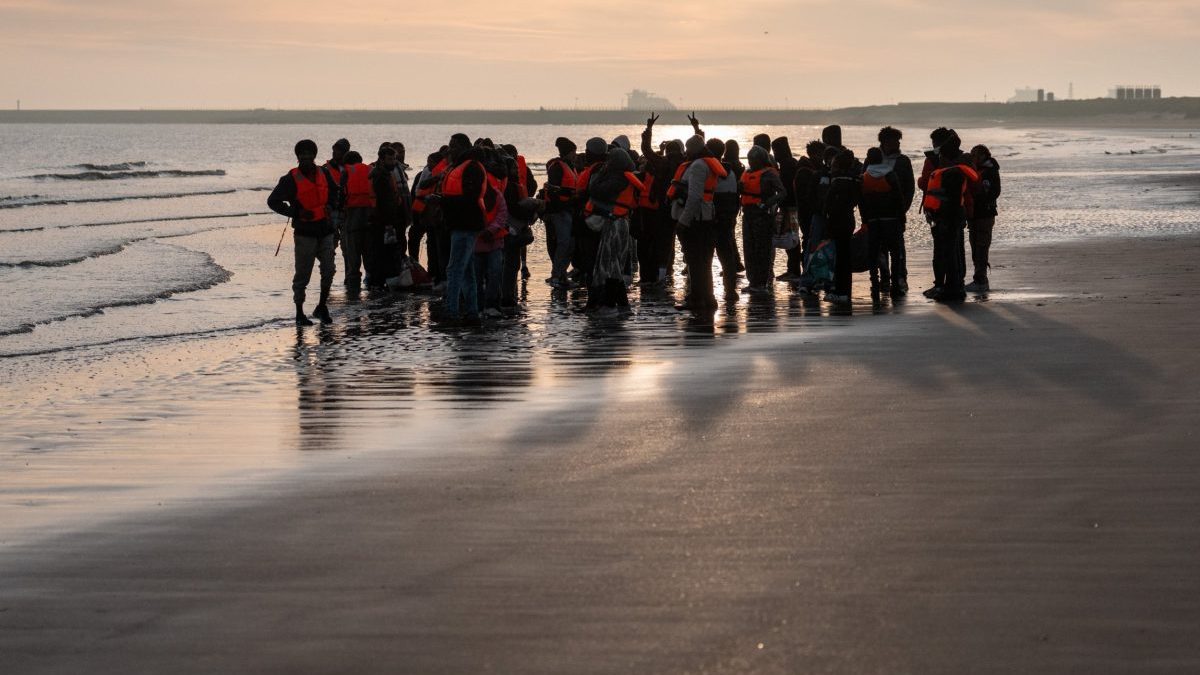Small boat arrivals are rising again, despite hundreds of millions given to France to police the Channel
France is “doing [its] best” to stop small boat crossings and has been “strengthening cooperation” with the UK, according to Sylvie Bermann, the former French ambassador to Britain.
Speaking ahead of Emmanuel Macron’s state visit to London, which she described as “very important”, Berman defended France’s approach to tackling irregular migration, insisting the country’s long coastline makes enforcement “difficult” but that authorities are doing what they can.
Her comments come as Macron prepares to meet Prime Minister Keir Starmer in London, where both sides are expected to announce new joint measures on Channel crossings, including expanded patrol powers and a possible asylum returns pilot.
But with arrivals already up nearly 50 per cent this year, the question remains whether strengthened cooperation will be enough to stem the flow.
Here is what France has been doing to stop Channel crossings, and whether it is working:
How many small boats are the French intercepting?
Figures from the UK Home Office show that small boat arrivals are rising again, despite hundreds of millions in joint investment in Channel patrols and surveillance.
In 2023, arrivals temporarily fell to 29,400 — down from 45,800 the year before — a drop attributed mainly to a sharp fall in Albanian nationals crossing, following a UK–Albania returns agreement.
But the trend has since reversed. In 2024, 36,800 arrived by small boat, with the average number per vessel reaching a record 53. Arrivals in June were 59 per cent higher than the same period in 2024, and by the first week of July 2025, more than 20,000 arrivals had already been recorded.
Some of the rise has been linked to favourable weather and an increase in “red days” — periods of calm sea conditions that favour departures — but some experts say this alone cannot explain it.
At the same time, French authorities have reported an increase in attempted interceptions. In 2022, they stopped approximately 33,000 people from crossing, up 43 per cent on the previous year.
Between May and December 2024, a further 21,300 people were intercepted in 694 boats, with 607 more vessels prevented between January and early October. Complete data for 2024 and 2025 is not yet available.
These numbers suggest French efforts are disrupting crossings on a significant scale, but not enough to reduce the overall flow. Repeated attempts by the same individuals, combined with more crowded boats, may also be contributing to the inflated figures.
 Migrants wait to sail into the English Channel off Gravelines, France (Photo: Carl Court/Getty)What challenges are French authorities facing?
Migrants wait to sail into the English Channel off Gravelines, France (Photo: Carl Court/Getty)What challenges are French authorities facing?
In March 2023, the UK and France signed a three-year deal worth €541m (then £476m) to expand joint operations. That deal accounts for nearly two-thirds of total UK spending on Channel security since 2014 — a figure that now exceeds £700m, according to the House of Commons Library.
A further £8m was added in February 2025 to fund “new, stronger enforcement plans”, although the UK Government does not publish detailed spending breakdowns, citing national security concerns.
Despite all the extra funding, French officials have long pointed to logistical difficulties when it comes to policing the Channel.
The 100-mile stretch of northern coastline between Calais and Le Touquet includes remote dunes and isolated beaches, making surveillance and rapid response difficult.
While police deployments have increased, with 1,200 officers now patrolling the coast each day (730 of them UK-funded), smugglers have adapted. A common tactic now is the use of so-called “taxi boats”, where dinghies are launched empty and pick up migrants further offshore.
France also does not operate immigration detention centres in the same way as the UK. Migrants who are intercepted but not prosecuted are often released and remain in northern France, where they continue to attempt crossings.
Humanitarian groups estimate that between 1,500 and 2,000 people usually live in informal camps near Calais, despite regular evictions, and many go on to attempt the journey across the Channel multiple times.
French authorities have introduced new tools, including drones and thermal cameras, and rapid-response beach patrols.
However, there have been concerns over tactics. A 2024 investigation by Lighthouse Reports and Le Monde alleged that UK-funded French boats had used aggressive “pushback” methods, including ramming and puncturing dinghies. The French government denies that such tactics are systematic.
 A group of people are brought into Dover, Kent, from a Border Force vessel following a small boat incident in the Channel (Photo: Gareth Fuller/PA Wire)What’s in the new UK–France migrant deal?
A group of people are brought into Dover, Kent, from a Border Force vessel following a small boat incident in the Channel (Photo: Gareth Fuller/PA Wire)What’s in the new UK–France migrant deal?
Macron is expected to use his state visit to London to announce a significant expansion of French enforcement powers, alongside a potential breakthrough on asylum returns.
One of the key developments under discussion is a change to French policing rules, known as its maritime protocol, that would allow officers to intervene up to 300 metres offshore. This would let police physically enter the water to disable dinghies or prevent launches, even after boats have left the beach — a significant change from previous practice.
Until now, French authorities have largely avoided direct contact with vessels once they are afloat, citing limits imposed by the UN Convention on the Law of the Sea. That legal framework restricts states from interfering with ships at sea unless a rescue is required.
Reports of officers puncturing dinghies in shallow waters off Boulogne last week have fuelled speculation that the policy is already being applied on a trial basis. French officials, however, have insisted they damaged the boat because it was dangerous and not due to any new protocol.
Also on the table is a proposed “one-in, one-out” pilot deal on asylum returns. Under the plan, the UK would send back a limited number of small boat arrivals to France, in exchange for accepting an equivalent number of migrants with legal ties to Britain. If agreed, it would mark the first bilateral France–UK asylum returns arrangement since Brexit.
Alongside these headline measures, the two governments may also announce further joint investments in surveillance technology, aerial monitoring and enforcement patrols along the French coast.
